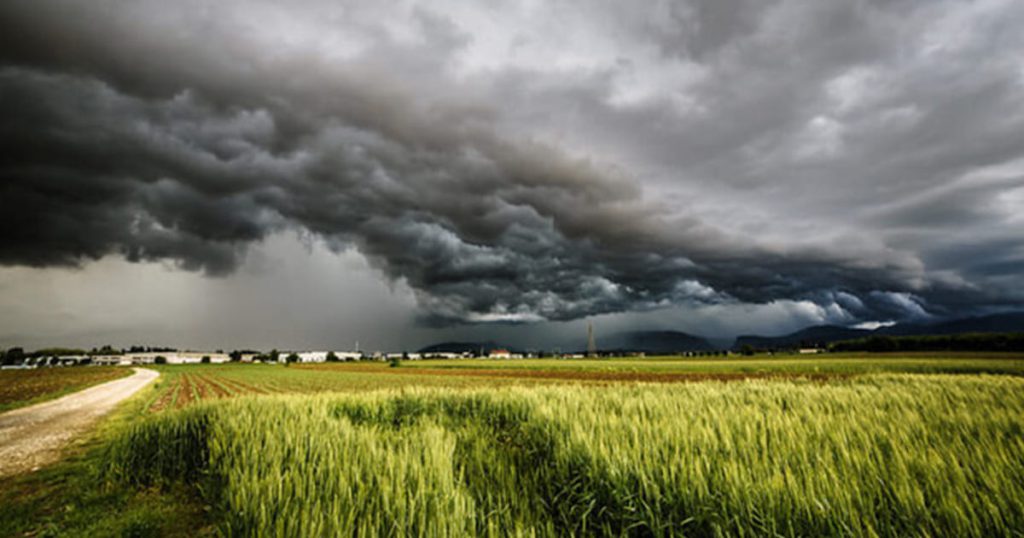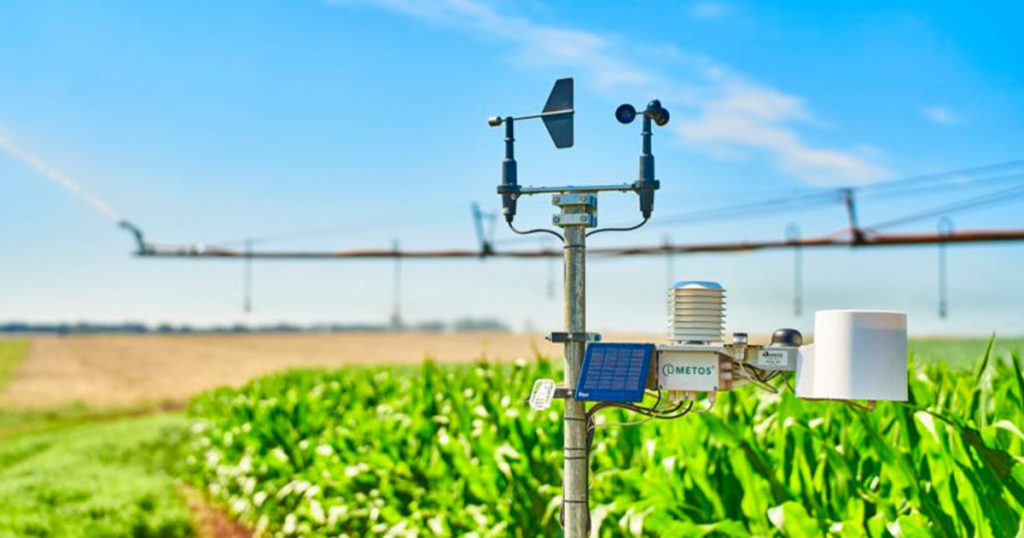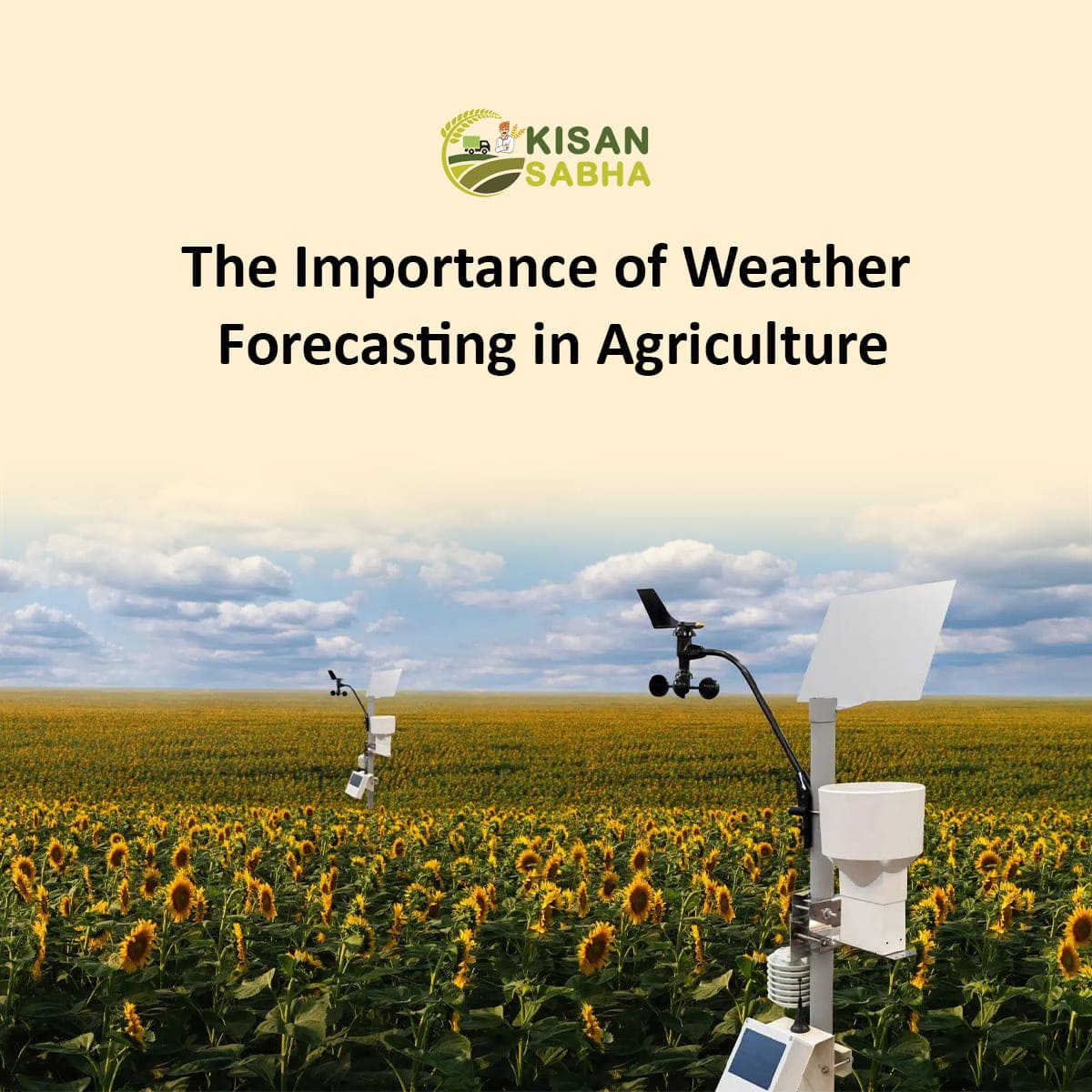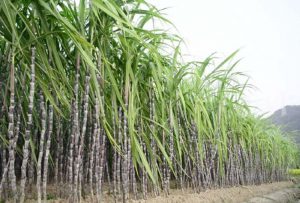As the globe continues to contend with global warming, climate change, and its destructive effect on global food supply, the relevance of weather forecasting must be recognized. Africa’s agricultural challenges as a result of climate change and variable precipitation patterns are a good illustration.
Furthermore, researchers predict that worldwide agricultural production will be lowered by 17% by 2050 as a result of wildfires, hurricanes, tornadoes, and frequent flooding, depriving the soil of its nurturing capabilities for sustainable agriculture.
As a result of rapid technological improvement, such as that observed in precision agriculture, modern farming now has the opportunity to equip modern farmers with the necessary skills and technical know-how to turn their farm fortunes around by utilizing weather forecasting in farming. The benefits of weather predicting are comparable to having high intelligence or the capacity to avoid unfavorable events, such as terrible weather.
When you can precisely anticipate the weather, you have an incredible edge against the elements and opposing forces of nature.

What is Weather Forecasting in Agriculture?
Weather forecasting in agriculture refers to the prediction of an area’s atmospheric conditions at a certain period to determine its suitability or unsuitability for agricultural activities.
This current agricultural practice is based on the association between steady atmospheric conditions like rainfall, sunshine, temperature, humidity, air, and abundant produce.
As a smallholder farmer, your ability to predict the weather by acquiring practical weather forecasting abilities contributes to your ease in making informed judgments about your farm practices, which makes you a successful farmer – whether you deal in crops or livestock farming.
Weather forecasting, for example, allows you to correctly plan your farm operations, such as planting, irrigation, fertilizer application, pruning/weeding, harvesting, or livestock mating because farming and agriculture, in general, are heavily reliant on seasons and weather.
One of the benefits of weather forecasting is its predictive nature, which allows farmers to be aware of climatic changes in their area before they occur!
Farmers used to anticipate the weather using their intuition, experience, and powers of observation and perception. As a result of their bad judgment, they suffered enormous losses. The inaccuracy of these systems has been exacerbated by the increasingly frequent and unpredictable variations in weather caused by climate change.
However, current agricultural practice is being refined by the introduction of easy weather forecasting mechanisms for farmers, allowing them to receive weather information on their smartphones.
Also Read:- Evolution of India’s Tractors Manufacturing Sector
Reasons Why Weather Forecasting is Crucial in Agriculture
The value of weather forecasting in agriculture extends beyond improving crop yield, livestock health, and revenue generation. While there are many uses for weather forecasting for farmers, the following are some of the less obvious advantages:

Relationship Between Weather Predictions and Fertilizer Timing
Chemical compounds that are either water-friendly or hostile make up fertilizers. As a result, farmers like you can use weather predictions to choose when to fertilize their land. A reliable weather forecast provides this for you since the soil needs to be neither too dry to hinder penetration nor too wet to cause runoff for optimal fertilizer benefit.
Pest Management
Pests pose a serious threat to thriving farmlands by attacking plant growth and lowering total productivity. But what good are your pest control efforts if the weather isn’t on your side? Too much rain could wash them away, or there can be strong winds that prevent them from settling properly. Additionally, certain breezes could carry pests to your property from nearby areas. Therefore, accurate weather forecasts can help you decide when to execute pest control measures for the greatest outcomes and when to predict when pests may arrive.
Field Workability
Simply said, certain days are better than others for fieldwork. For instance, it can be difficult to till dry, gritty soils on hot days, whereas moist ground is simpler to deal with. This explains field workability in the sense that accurate field meteorological data from weather forecasting instruct you on when and when not to work on your farms, allowing you to create the optimum daily schedule for your fieldwork.
Improved Irrigation Process
Irrigation is the process of applying water to farmland artificially to boost agricultural output. However, because of the negative effects of climate change and global warming, you risk losing all the artificially added moisture through evapotranspiration due to severe temperatures, solar radiation, or extended droughts if you don’t time your actions properly. It means that accurate weather forecasting, as demonstrated in climate-smart agricultural ways of managing meteorological information for precision and control in crop production, can help avoid such scenarios of lost effort.
Conclusion
Weather data is becoming more significant in the expanding subject of smart farming, a farming technique that focuses on accuracy and control when it comes to crop output.




